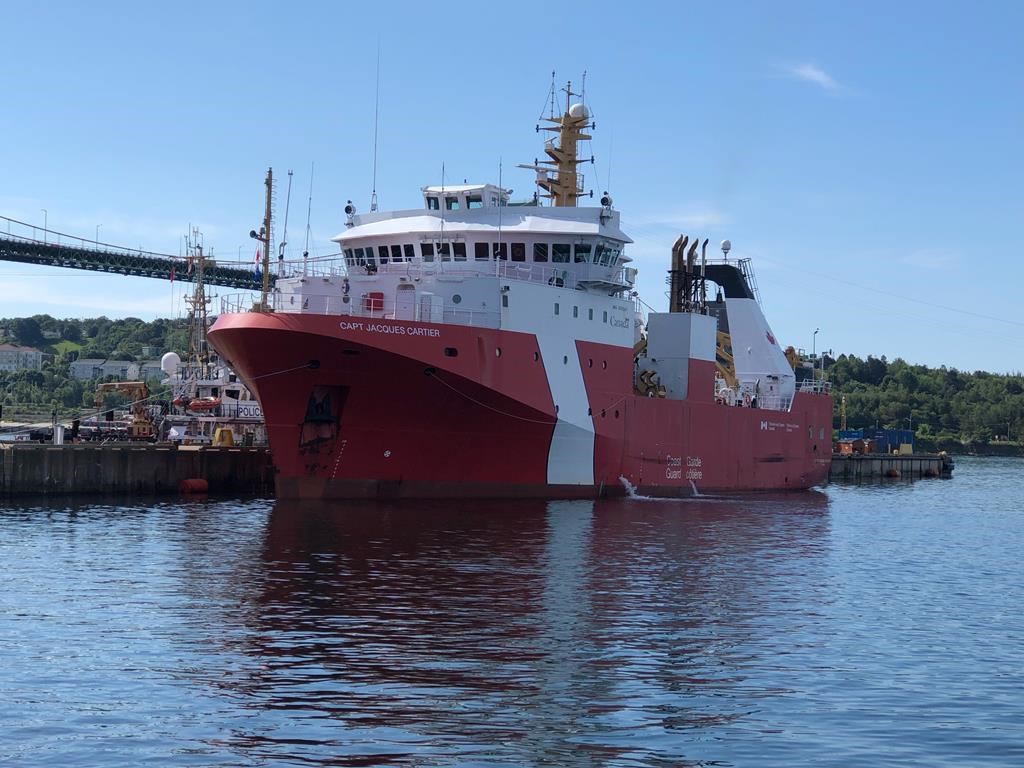The Canadian Coast Guard has officially dedicated the fisheries research vessel Capt. Jacques Cartier.

Faith Scattolon, a former Fisheries Department regional director general for the Maritimes, ceremoniously broke a bottle on the ship’s bow during a dockside gathering at a government wharf in Halifax.
The coast guard ship Capt. Jacques Cartier, like its two sister ships Sir John Franklin and John Cabot, is equipped to support scientists in collecting data on Canada’s marine ecosystems and the impacts of climate change.
The vessel’s suite of research systems includes fishing trawls and four science labs.
In addition to performing science work, the vessel also carries out missions involving search and rescue, environmental response, maritime security and humanitarian operations.
Before its official dedication, Capt. Jacques Cartier was welcomed into the Canadian Coast Guard fleet in November 2019, making it the second large vessel delivered under the national shipbuilding strategy.
The offshore fisheries science vessels are the first full class of ships to be delivered by Seaspan’s Vancouver Shipyards, as one of the non-combat ships built under the strategy.
Each of them is named after European explorers who made a significant contribution to the early post-contact history of Canada.
The vessels support scientific research on topics such as fish acoustics, the abundance and distribution of marine species, and the impact of human activity on fisheries and ecosystems.
This report by The Canadian Press was first published Aug. 29, 2022.
- What is a halal mortgage? How interest-free home financing works in Canada
- Capital gains changes are ‘really fair,’ Freeland says, as doctors cry foul
- Budget 2024 failed to spark ‘political reboot’ for Liberals, polling suggests
- Peel police chief met Sri Lankan officer a court says ‘participated’ in torture




Comments